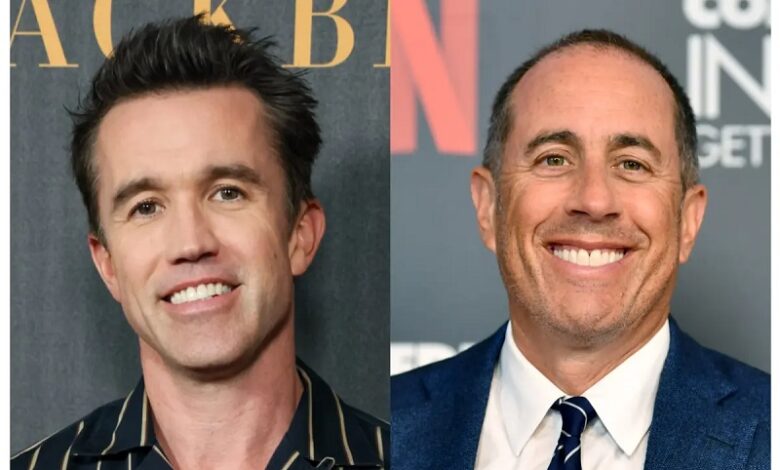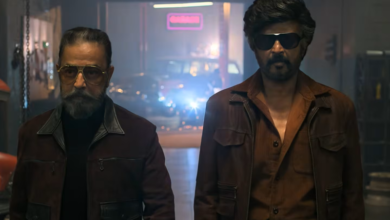ARE SITCOMS DEAD: ROB McELHENNEY ANSWERS JERRY SEINFELD

News Mania desk/Agnibeena Ghosh/3rd May 2024
Rob McElhenney, the creator of “It’s Always Sunny in Philadelphia,” has fired back at Jerry Seinfeld’s assertion that sitcoms have lost their edge, using a clever reference to his own show to make his point.
Seinfeld, aged 70, stirred controversy recently with remarks in an interview with The New Yorker, attributing the perceived decline in television comedy to what he described as “extreme left,” “PC crap,” and an excessive concern for not offending others. The comedian, famous for his eponymous show “Seinfeld” that aired from 1989 to 1998, lamented that many of the jokes from his series would not be permissible in today’s climate.
He cited an example from “Seinfeld” where the character Kramer considers starting a business involving homeless people pulling rickshaws, a premise Seinfeld doubted could be aired today.
McElhenney swiftly responded to Seinfeld’s query on Twitter, simply stating, “Probably,” accompanied by a picture of the character Rickety Cricket from “It’s Always Sunny in Philadelphia.” Rickety Cricket’s character arc on the show, portrayed by David Hornsby, involves a descent into homelessness and addiction, making Kramer’s business idea seem mild in comparison.
This subtle retort by McElhenney highlights the irreverent and boundary-pushing nature of “It’s Always Sunny in Philadelphia,” a show known for its dark humor and willingness to tackle taboo subjects.
In addition to his creative endeavors in television, McElhenney, alongside actor Ryan Reynolds, made headlines for their joint investment in Wrexham AFC, a football club in England. Their ownership journey has been chronicled in the FX/Disney+ series “Welcome to Wrexham.”
During a recent promotional interview for the show’s upcoming third season, McElhenney and Reynolds candidly discussed the financial challenges they faced with the investment. McElhenney admitted that their advisors had discouraged the venture from an economic standpoint, indicating the significant financial strain it has placed on them.
Despite the skepticism surrounding the investment, McElhenney and Reynolds remain committed to the club and are determined to see it succeed, demonstrating their passion for the sport and their willingness to take risks in pursuit of their goals.
Through both his creative work in television and his entrepreneurial ventures, Rob McElhenney continues to challenge conventional norms and push the boundaries of comedy and storytelling, reaffirming his status as a trailblazer in the entertainment industry.






